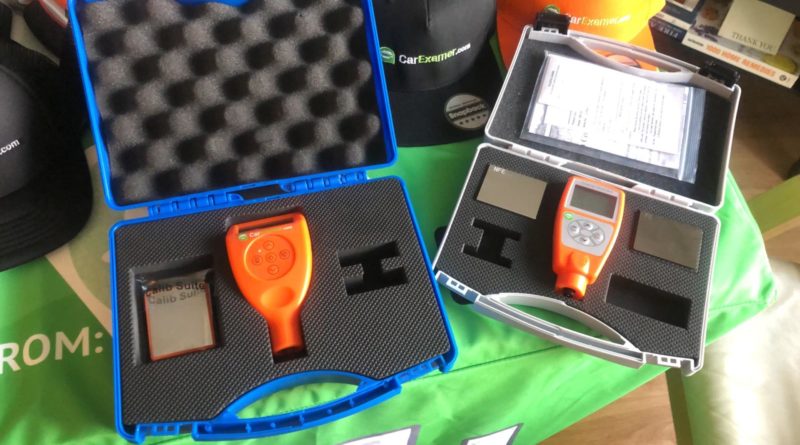How to Use Paint Thickness Gauges on Cars
Car paint thickness gauge are truly marvels of technology in the engineering, fabrication and general production and structural world. There’s a place for them in all kinds of situations, and when we take things to a really granular level, like using a paint thickness gauges in the car industry, they shine even brighter.
Paint is always a go-to factor of any car. It determines the colour of the car, often the condition, and a whole range of other stuff characteristics too. This is all the more reason to understand what really goes into the need for a paint thickness gauge, and we’ll guide you through as much as we can here.
Why does a paint thickness Gauge matter?
The paint on a car can mean a lot more than just what your car looks like. It also actually plays a big role in the quality of your car too. It’s not as dramatic as it sounds, but it does say a lot about factors like the age of your paint job, how long it’s likely to last, and even potentially the standard of which it was done.
All of these things have a high level of importance when looking at the value of your car as well as the quality, and that really does matter more than words can say. It’s what often tells us a good deal form a bad, and even that a job has been done right at all. How to look after paintwork.
How does it work?
So how does such an incredible machine really work to give you this kind of result? It must be a complex science, after all, right? Well, you’re not far wrong. It’s actually an incredibly clever process to help you get to the answer you’re looking for.
Typically, it occurs in a couple of different ways. The most common or often the most preferred method involved in paint thickness measurement comes from things like magnetic measurement and electrical current measurement.
These kinds of processes use response times from electromagnetic signals to see how far they can travel before bouncing back. The longer the time, the thicker the paintwork tends to be, and that can be a hugely complicated process. What’s even more complicated still is that it changes in every different area of the car too (so there won’t be one number right the way through).
Different Levels of Gauges
Like every piece of equipment, you can buy, paint thickness gauges come in different levels of advancement too. There are options to buy more basic equipment for lower prices all the way through to the high end, top of the range kit like we have with our elcometers. The differences aren’t small either.
More high-end advanced meters, for example, have a lot of features that more basic thickness gauges aren’t able to offer you. That makes them a great tool to have since they’re actually able to make the whole thing a lot easier. They are equipped with features like more accurate readings on the gauge, a much greater number of measurements available, a more reliable average overall as a result after removing outliers and odd data. It’s a huge deal. You can even save the results along with the registration of the vehicle in order to access all of this data later one, which is perfect if you’re doing this professionally or handle multiple vehicles.
To put that into context, the lower end thickness gauges don’t really come close to having that kind of capability. They tend to cap at a total of 90 readings in some cases, which can really offset your results if you’re doing a larger or more in-depth reading.
Remember
A stock paint job form the cars manufacturer, a high-end respray and a low-cost repair will all have dramatic differences in the quality after all, and with a tool like a paint thickness gauge, you have a keen insight into all of this that’s literally hidden beneath the surface. See car safety system operation.
For more information on this topic and everything included in it, feel free to check it out from our favourite source at Elcometer and check out the products we sell here.
Buying a used VW. Buying used vauxhall, BMW, Jaguar, Ford, Volvo, Range rover, Bentley, Aston Martin, Porsche, Ferrari, Lamborghini, Maserati, Hyundai, Tesla, Honda, Pagani

